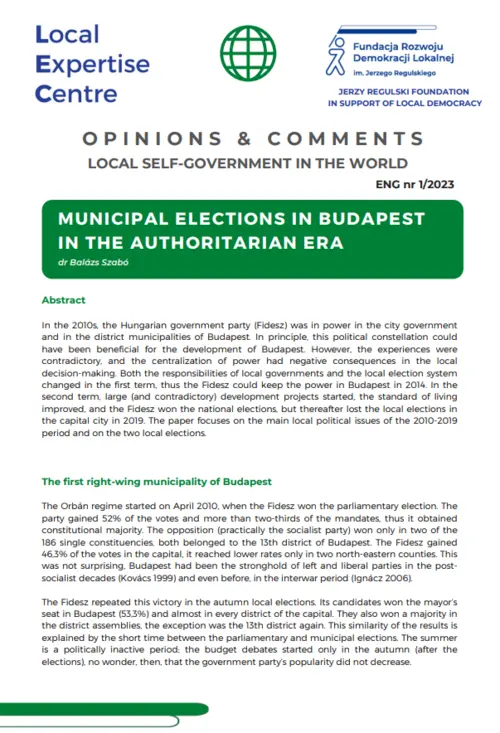MUNICIPAL ELECTIONS IN BUDAPEST IN THE AUTHORITARIAN ERA

Is Hungary still a democracy? This question has also come up frequently in the Polish media in recent years.
Viktor Orbán's rule began in April 2010, when his party, Fidesz, won the parliamentary elections. With 52% of the vote, Fidesz politicians took more than two-thirds of the seats and thus won a constitutional majority.
The opposition suffered defeat, winning in only two of 186 individual constituencies (interestingly, both belonged to Budapest's 13th district). In the capital, Fidesz won less, with 46.3% of the vote, which came as no surprise to analysts. After all, Budapest in the post-socialist decades was a stronghold of leftist and liberal parties.
Fidesz repeated this victory in the fall local elections. Its candidates won the mayoral seat in Budapest (53.3%) and in almost every district of the capital. They also gained a majority in the district assemblies, (the 13th district was the exception).
What were the consequences of these victories, and what does Hungarian local politics currently look like? Dr. Balázs Szabó of the Geographical Institute Research Center for Astronomy and Earth Sciences in Budapest provides answers to these questions in his analysis.
This publication is also available in Polish


